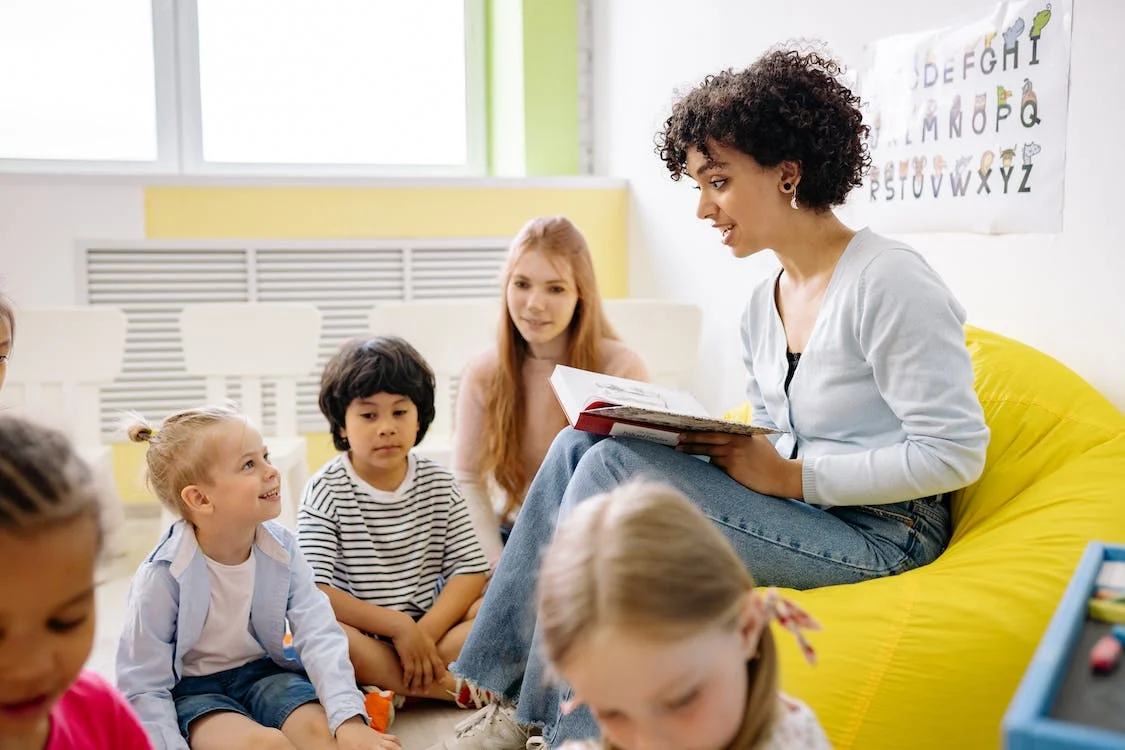As an educator, you have the immense responsibility of shaping future generations. It’s a noble profession, and requires a lifelong commitment to learning and growth. Educators play a crucial role in shaping the future by imparting knowledge, skills, and values to students. Did you know that according to various studies, students with access to well-trained and knowledgeable teachers tend to perform significantly better academically than those without? Also, studies have revealed that professional development of teachers is key to improving student achievement.
An educator has the power to make a lasting impact on students, and continuing to grow and develop professionally is essential to ensuring their success. To help you on your journey to becoming a better educator, we’ve compiled a list of effective ways to grow and improve in your profession.
How You Can Grow as an Educator
Read below to know how you can take your career to the next level as an educator:
1. Embrace Life Long Learning
Lifelong learning is an essential aspect of becoming a better educator. Pursuing advanced degrees and certifications or attending professional development workshops and conferences can help you stay up-to-date with the latest trends and best practices in education. The flexibility of online education programs has made it easier for educators to continue their education while focusing on their current job responsibilities.
Educators can opt to enroll in one of the online programs in education to develop the skills and knowledge necessary to become a leader in the education field and make a greater impact on your students. Online degree programs provide flexibility and convenience to study at your own pace and schedule.
Continuous learning helps teachers bring new and innovative ideas into the classroom, keeping students engaged and excited about learning. Furthermore, it helps educators to stay motivated and inspired, leading to greater job satisfaction and personal fulfillment. Ultimately, lifelong learning is an investment in personal and professional growth that can result in better teaching, more effective student learning, and a more rewarding teaching career.
2. Be Adaptable and Flexible
It’s important to be adaptable and flexible to excel as an educator. Every student has different learning needs, so teachers should be willing to adjust their teaching methods and strategies to meet those needs. For example, teachers might use visual aids or hands-on activities to engage students with different learning styles. They should also modify their lesson plans or assignments to accommodate student needs.
Changes in the learning environment, like a pandemic or natural disaster, can disrupt learning. Educators must be prepared to pivot quickly and find new ways to deliver instruction and support student learning, even online. Being adaptable and flexible requires experimenting with new teaching methods, embracing change, and continuously learning and growing. It helps create an inclusive and effective learning environment that helps students achieve their academic goals.
3. Develop Strong Communication Skills
Good communication skills help build strong relationships with students, parents, and colleagues. Clear and concise communication ensures students understand lesson objectives and can ask questions when needed.
Educators must use various communication methods like email, phone calls, and in-person meetings to inform parents about their child’s progress. Constructive feedback is useful to improve teaching methods, and good communication skills help in collaboration with colleagues, sharing ideas, and best practices. Developing strong communication skills takes practice, but it’s vital for successful teaching. Strong communication helps to foster a positive learning environment, build stronger relationships with students, and make teaching fulfilling for educators.
4. Foster a Positive Learning Environment

Photo by on Pexels
Creating a positive learning environment is crucial for the success of students. A positive learning environment is one where students feel safe, respected, supported, and encouraged to participate in learning actively. To achieve this, educators should set clear expectations and establish a mutual respect and accountability culture. They should encourage student participation and feedback and create opportunities for students to collaborate and share ideas.
Creating a welcoming and inclusive classroom where all students feel valued regardless of their background or abilities is important for fostering a positive learning environment. While promoting a positive learning environment requires effort and adaptability to individual student needs, it is essential for effective teaching. It can help create a motivated, engaged, and an exciting learning environment.
5. Leverage Technology to Enhance Learning
Using technology to enhance learning is another way to excel as an educator. Technology has transformed how we learn and teach, providing a range of tools to engage students and enhance their learning experience. By using interactive whiteboards, educational apps, and online learning platforms, you can make learning more engaging and interactive for your students.
Using technology in the classroom can also help personalize learning experiences and cater to the needs of individual students while fostering a positive learning environment. However, staying current with the latest tools and trends is crucial, and ensuring that technology supports learning objectives and does not distract from them. By embracing technology, you can create a more exciting learning experience and help your students thrive in the 21st century.
Conclusion
To excel as an educator, one must be committed to lifelong learning, adaptable, possess strong communication skills, create a positive learning environment, use technology to enhance learning, and encourage creativity and critical thinking. In this way, educators can create an inclusive and effective learning environment that supports student success. Keeping up with the latest trends and best practices in education inspires students to become lifelong learners. Adaptability allows educators to meet individual student needs and adjust to changes in the learning environment. Strong communication skills and a positive learning environment build relationships with students and colleagues, while technology enhances learning and encourages creativity and critical thinking to prepare students for the future.
By embracing the above-discussed ways to excel as an educator, you can create a positive and effective learning environment that supports student success and leads to a more fulfilling and rewarding teaching career. As Nelson Mandela once said, “Education is the most powerful weapon you can use to change the world.” By committing to lifelong learning and nurturing the next generation of leaders, educators can impact the world.
Read more education articles at ClichéMag.com
Images provided by Adobe Stock, Flickr, Unsplash, Pexels, Pixabay & Creative Commons




